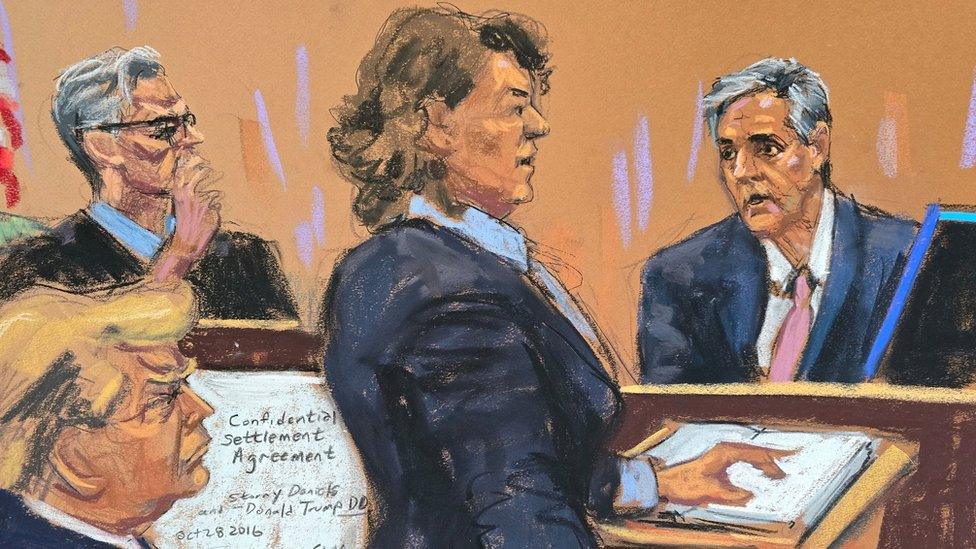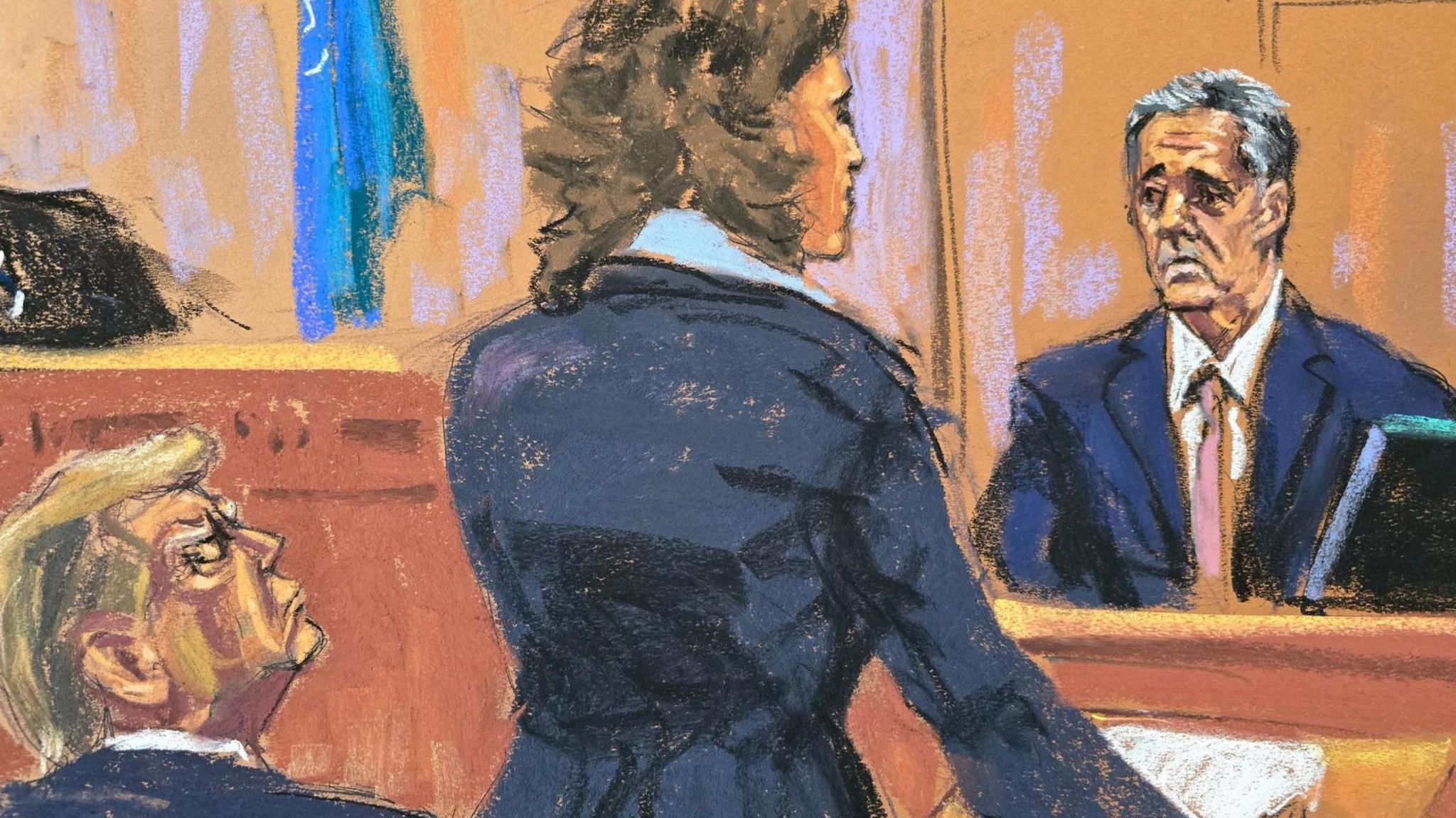Michael Cohen details what life was like as Trump's lawyer
- Published

Michael Cohen is questioned by prosecutor Susan Hoffinger before Justice Juan Merchan as former U.S. President Donald Trump watches
Testifying just a few feet away from his former boss of a decade, Michael Cohen walked a Manhattan courtroom through the highs and lows of working behind-the-scenes for Donald Trump, a man for whom he once pledged to take a bullet.
"The only thing that was on my mind was to accomplish the task, to make him [Trump] happy," Cohen told the court on Monday.
Mr Trump has pleaded not guilty to charges of falsifying business records, relating to a hush-money payment Cohen, his former lawyer and fixer, claims he made to an adult-film star on the former president's behalf.
Leading up to Cohen's testimony, Mr Trump and his ex-attorney traded fiery insults on social media.
But on Monday, the former friends didn't even glance at each other as Cohen - calm and collected - told the court about their tumultuous past.
Over five hours of testimony, he shed light on what being the New York businessman's fixer involved, including burying women's stories that could be damaging and lying when necessary.
Monday was one of the few times the two have been in the same room recently, since Cohen, 57, came to work for Mr Trump, 77, decades ago.
The son of a Holocaust survivor from Long Island, Cohen never wanted to be a lawyer, he testified, saying his grandmother pressured him into it.
But after going to law school, he found himself working at a personal injury firm, where he did some "legal" and "non-legal" work for Mr Trump, he testified.
In 2007, Cohen said he accepted a job as Mr Trump's special counsel, a role with a base salary of $375,000 (£298,000).
It was a coveted job for Cohen, who would remain in the role for 10 years.
Watch: What Michael Cohen said at Trump's hush-money trial
Mr Trump sent staff to pack up his old office and gave him his daughter Ivanka's office on the 26th floor of Trump Tower, not far from his boss, Cohen said. Eventually he moved to an office even closer to Mr Trump, whom he called "the Boss".
It was "an amazing experience in many, many ways", Cohen said, calling the Trump Organization a "big family".
He reported directly to Mr Trump, on "whatever concerned him, whatever he wanted", Cohen said, calling his ex-boss a micromanager.
"Everything required Mr Trump's sign-off," he said.
At the same time, Mr Trump was careful about paper trails, Cohen said. The Trump Organization founder never had an email address, telling Cohen that "emails are like written papers".
"There are too many people who have gone down as a direct result of having emails that prosecutors can use in a case," Cohen said Mr Trump once told him.

BBC News reporters are in the Manhattan courtroom covering the historic first criminal trial of a former US president. You'll find their updates and analysis on the BBC news website and app, and across TV, radio and podcasts.
LIVE UPDATES: How Monday in court unfolded
LATEST NEWS: Ex-lawyer Michael Cohen says he paid hush money for Trump's benefit
VIDEO WRAP: What Michael Cohen said at Trump trial
ANALYSIS: Key players at centre of case
BACKGROUND: How Cohen's relationship with Trump soured

At first, Cohen's work involved negotiating bills from vendors that Mr Trump thought were unreasonable, he said.
When he did well, Mr Trump told him so, he said. That left Cohen feeling "on top of the world", he told the court.
But working for Mr Trump sometimes required unethical practices, Cohen alleged. Asked by prosecutors whether he would lie on Mr Trump's behalf, Cohen said yes.
That was sometimes required to "resolve the task", he said.
After Mr Trump announced his run for president in 2015, Cohen's role expanded to include other scandalous practices: facilitating catch-and-kill schemes, which meant buying women's stories of alleged sexual encounters with Mr Trump to ensure they were never published.
It was an arrangement designed to boost Mr Trump's chances of winning the election, Cohen testified.
The point was to "do everything within our power to protect Mr Trump", Cohen said. But this scheme - and his lies for Mr Trump - would eventually put Cohen behind bars.
Mr Trump's former fixer pleaded guilty to federal charges in 2018 for lying to Congress about his involvement in Mr Trump's foreign real estate interests - and for campaign finance violations related to the hush-money payment to adult-film star Stormy Daniels.
He emerged from three years of prison and house arrest an ardent critic of the former president.
- Published13 May 2024
